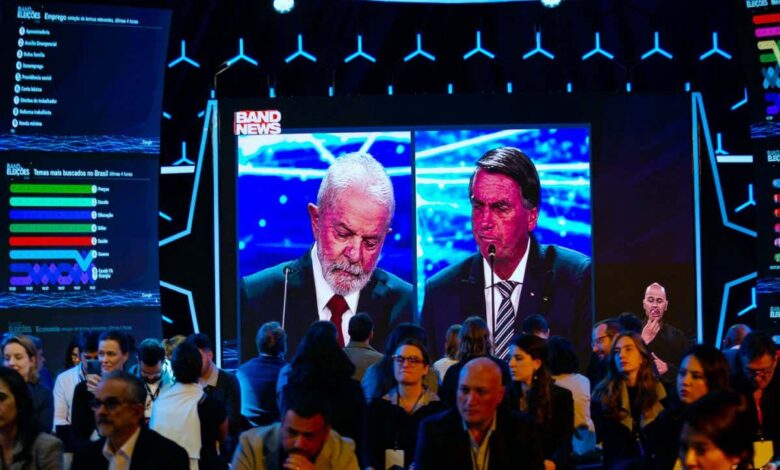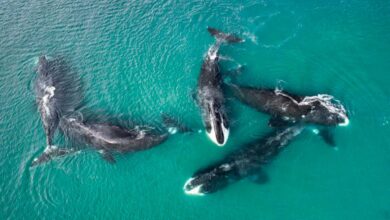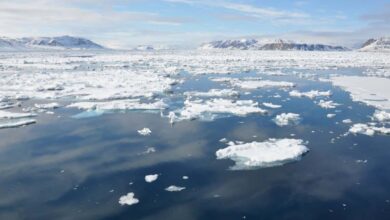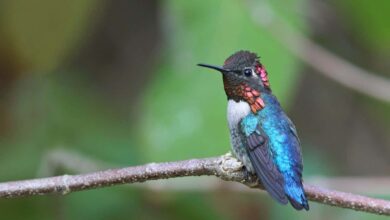The destiny of the Amazon rainforest will be determined by the Brazilian election.

Since Bolsonaro entered office in 2019, numerous deforestation records have been broken as a result of his administration's environmental deregulation strategy. According to Philip Fearnside of the National Institute for Research in Amazonia, land-grabbers are utilising what may be their final opportunity to cut down trees without repercussions, just prior to the 2 October election.
In June, when ranchers take advantage of a decrease in precipitation to clear land, the number of fires in the Brazilian Amazon typically climbs. However, even during the dry season, the number of Amazon fires this year has stunned conservationists: In August, Brazil's national space agency spotted 31,513 fires, the greatest amount in 12 years and nearly half of the total for the full year of 2018.
Fearnside states, “People realise they can disregard all current environmental restrictions under Bolsonaro, but his first term is coming to a close and many believe he may not be re-elected.”
According to analysts, the vote is also a referendum on the future of the Amazon, in addition to issues such as growing inflation and hunger levels.
According to Erika Berenguer of the University of Oxford, “I don't say this lightly as a scientist, but this is the most crucial election in Brazilian history for the Amazon and its survival.”
74.65 percent more forest has been lost in the Amazon since Bolsonaro assumed office, with 13,000 hectares cleared in 2021 alone, the highest yearly record since 2008.
According to ecologists, this deforestation has brought the Amazon to a tipping point. The rainforest will become a savannah if this is not stopped, as it will no longer be able to hold enough moisture to sustain itself.
Experts hold Bolsonaro accountable for the harm. The president has eliminated environmental rules, hired military personnel who desire to develop the Amazon to lead environmental agencies, and openly advocated colonisation of the Amazon rainforest. Fearnside says that the Bolsonaro administration has been a complete environmental disaster.
Lula, Bolsonaro's primary opponent, was as president from 2003 to 2010 and now leads in the polls with 41% to Bolsonaro's 37%. To win in the first round and avoid a run-off election on October 30, a candidate must receive fifty percent of the vote.
Ciro Gomes, the former governor of the Brazilian state of Ceará, and Simone Tebet, a senator, are also in the race for the presidency, but they are considered outsiders, polling at 8% and 6%, respectively.
Lula claims he will restore the environmental harm by dissolving a number of Bolsonaro's decrees, assigning environmental specialists to government bodies, and clearing illicit miners from Indigenous reserves.
The former president has also advocated more ambitious measures, such as the establishment of a carbon pricing plan, a ministry devoted to Indigenous peoples, and a National Climate Change Authority, to ensure that Brazil's policies are in line with its Paris Agreement commitments.
Conservationists have raised concerns over mega-dams constructed during Lula's administration, but the former union leader has a strong track record of protecting the Amazon: deforestation fell 72% between 2004 and 2016 when Lula and then Dilma Rousseff – his successor as Workers' party leader and president – were in power.
According to Suely Arajo of the So Paulo Climate Observatory, the Lula administration made Amazon conservation a major objective for all government agencies. In addition to enhancing forest monitoring, they aimed to address the root causes of deforestation by supporting sustainable production and formalising land ownership.
This time, the mission would be more difficult. Growing mining villages are dependent on the illegal gold extracted from indigenous reserves, new roads have been developed, and lawlessness has spread throughout the Amazon.
Izabella Teixeira, the candidate's adviser on the environment and Brazil's environment minister from 2010 to 2016, thinks that if elected, Lula's strategy must be more ambitious this time around.
She adds that in addition to military operations to rid the Amazon of illicit miners, loggers, and ranchers, the government must better regulate food and gold markets, incentivize sustainable production, and employ technology to make agriculture more sustainable.
Teixeira asserts, “I believe that Lula is cautiously cognizant of the fact that this is a tremendous challenge and vastly different than in the past.”
Teixeira adds that Lula would collaborate with the commercial sector, scientists, and civil society to address the core causes of deforestation. She asserts that he will also aim to rebuild the international partnerships and conservation money lost under Bolsonaro, transforming Brazil into a global leader in combating climate change.
In the meantime, Bolosonaro has minimised the expanding deforestation. On September 20, he informed the United Nations General Assembly in New York that the Amazon is as pristine as it was in the 1500s. His office declined to comment in response to a request.



